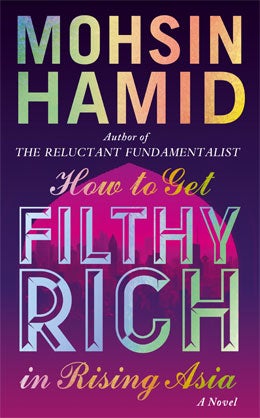
Now, in Exit West, you focus on the plight of refugees. In How to Get Filthy Rich in Rising East Asia you explore the characters who drive hotly developing economies. In The Reluctant Fundamentalist you explore the radicalization of a man who once felt at home in Manhattan. Your literary reflexes seem attuned to transnational cultural crises.

So the novel is an attempt to look at the universality of migration and it is about a world where physical migration is becoming universal. And, as they’re migrating, millions and perhaps billions of other people are migrating as well. We follow two characters, Nadia and Saeed, who flee an unnamed city that is undergoing a political apocalypse and migrate, first to Mykonos and then to Britain and then to California. It’s a novel that imagines a world where people can suddenly move beyond their borders. I think of transnational literature as writing which spans the borders of countries and blurs lines between them.Įxit West, your latest novel, certainly fits within the rubric of transnational literature.


I tend to take ideas like transnational literature and define them for myself. There is clearly a lot of academic writing on this subject, I am not familiar with it at all. You’ve agreed to take on the topic of ‘transnational literature.’ I’d like to start our discussion by asking you to define it. Foreign Policy & International Relations.


 0 kommentar(er)
0 kommentar(er)
